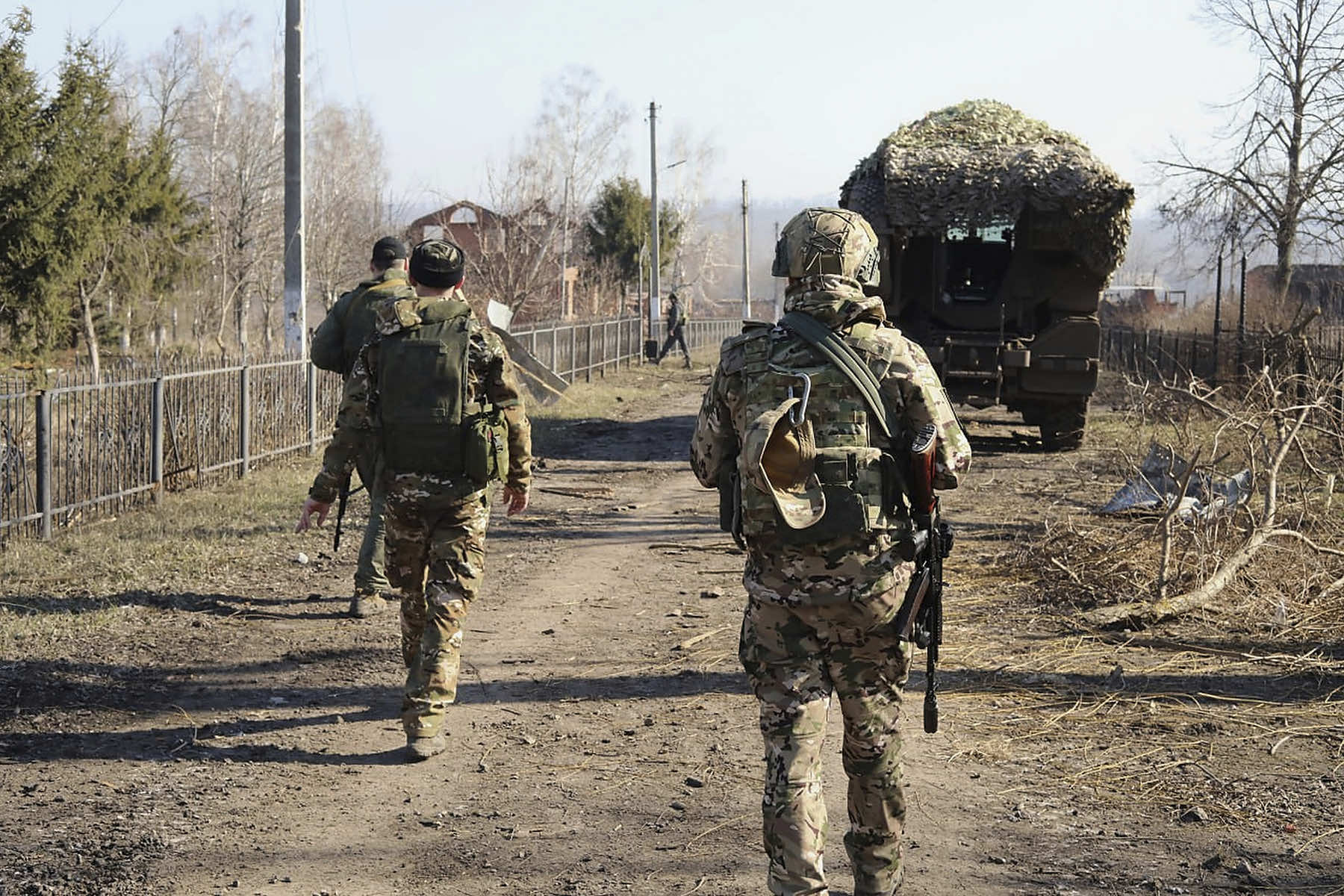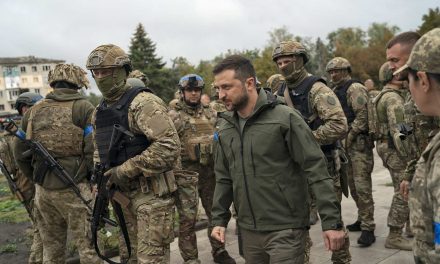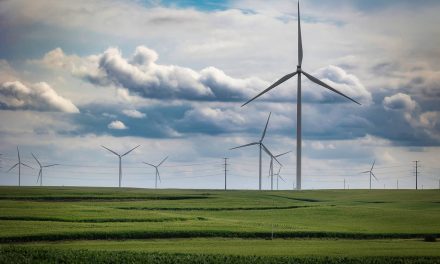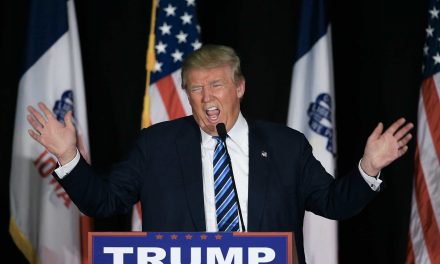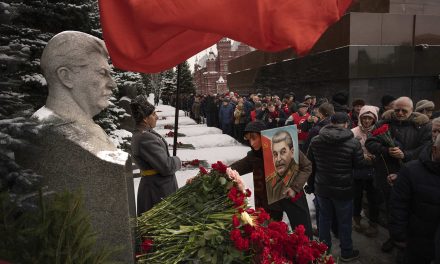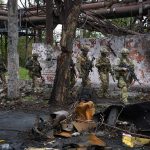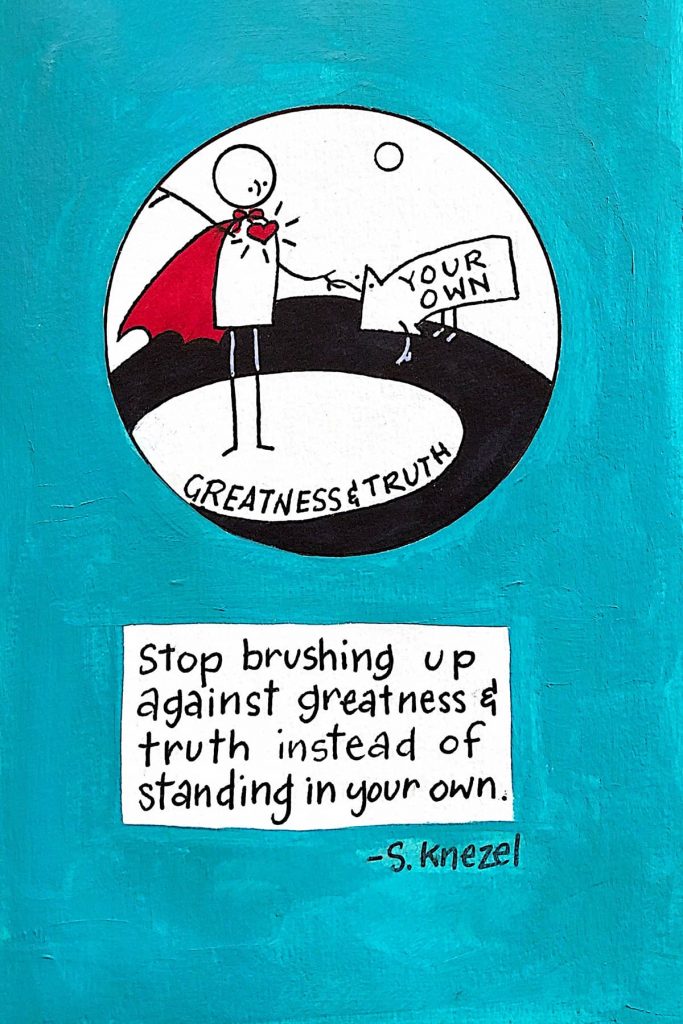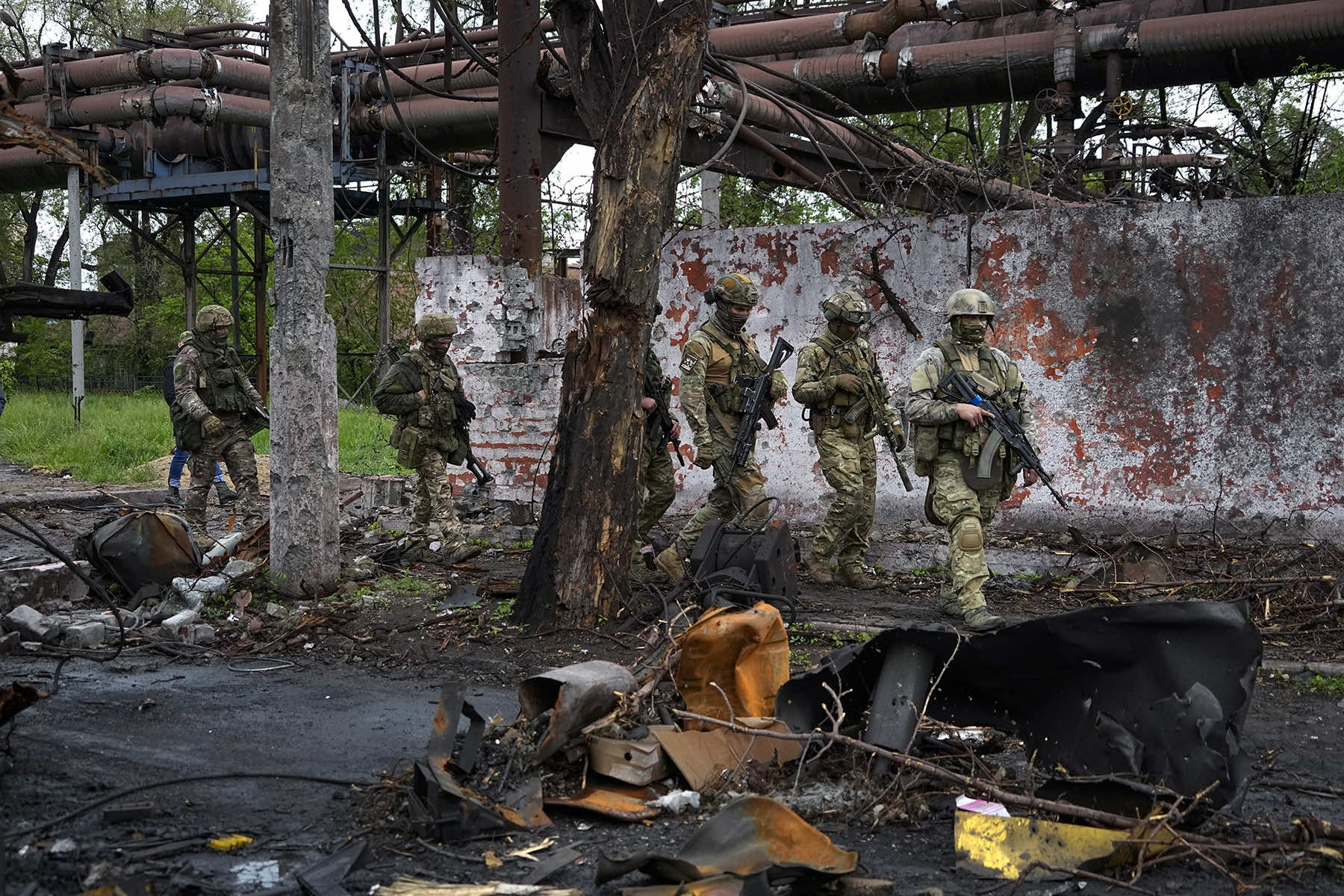
The Ukrainian military has captured two Chinese men fighting alongside the Russian army in the eastern Donetsk region and has information that “significantly more” are with Russian forces, Ukraine’s President Volodymyr Zelenskyy announced on April 8.
There was no comment from China. Beijing has not confirmed that it has provided Russia with weapons or military expertise, and it was not clear whether the Chinese had joined the fight on their own initiative. Russia allows foreigners to enlist in its military, as does Ukraine.
On April 9, Ukraine expanded on its claim that significant numbers of Chinese nationals were fighting for Russia’s invading army, saying it had gathered detailed intelligence on more than 150 mercenaries Moscow allegedly recruited through social media.
President said officials in Beijing were aware of Russia’s campaign to recruit Chinese mercenaries. He stopped short of saying the Chinese government authorized the mercenaries’ involvement in Ukraine.
He added that Ukraine has the last names and passport data for 155 Chinese citizens fighting for the Russian army and that “we believe that there are many more of them.” He shared with journalists documents listing names, passport numbers, and personal details of the alleged Chinese recruits, including when they arrived in Russia for military training and departed for service.
Zelenskyy said China would be the third country to offer military support to Russia after Iran, which has supplied attack drones, and North Korea, which has supplied soldiers, according to American and South Korean officials.
China has provided strong diplomatic support for Russia since it launched its full-scale invasion of Ukraine in February 2022. It has also sold Russia machinery and microelectronics that it can use to make weapons, in addition to providing an economic lifeline through the trade in energy and consumer goods.
U.S. State Department spokesperson Tammy Bruce said at a briefing in Washington that reports of Chinese citizens fighting on behalf of Russia were “disturbing.”
“China is a major enabler of Russia in the war in Ukraine,” Bruce said. China provides nearly 80% of the dual-use items Russia needs to sustain the war, she claimed.
The European Union’s foreign policy chief, Kaja Kallas, called Beijing “the key enabler of Russia’s war.”
Dual-use goods are entering Russia via China, she said in Brussels, adding “it’s clear that if China would want to really stop the support then it would have an impact.”
China has surged sales to Russia of machine tools, microelectronics and other technology that Moscow in turn is using to produce missiles, tanks, aircraft and other weaponry for the war, according to a U.S. assessment last year.
The alignment of China and North Korea with Russia evokes Cold War-era echoes of the Korean War, when both nations deployed troops and arms to support the communist North against U.S.-backed South Korea.
That conflict. which remains technically unresolved. set a global precedent for proxy warfare and long-term regional destabilization. Now, Beijing and Pyongyang are again positioned on the same side of a Eurasian war, supplying men, materiel, and political cover to Russia.
The historical symmetry is unmistakable and ominous. It is one of an authoritarian bloc reconstituting itself with the express goal of confronting the U.S.-led democratic alliance system. Analysts say this re-convergence threatens to destabilize Europe and Asia simultaneously, stretching American influence thin and raising questions about the durability of post-World War II security structures.
China has provided strong diplomatic support for Russia since it launched its full-scale invasion of its neighbor in February 2022. Beijing has also offered an economic lifeline through the trade in energy and consumer goods.
Analysts say China is playing both sides of the war, enabling destruction while positioning itself to dominate the reconstruction. In January 2025, Ukraine’s state railway operator signed two infrastructure contracts with Chinese rail manufacturers, even as Chinese nationals were being captured on the battlefield fighting for Russia. Chinese components have been routinely found in Russian missiles recovered from destroyed residential buildings, elementary schools, and infrastructure sites.
The Institute for the Study of War noted the irony. Beijing supports the Kremlin’s military assault, and then profits from rebuilding the ruins. Critics describe this as geopolitical looting — exploiting war as a commercial cycle, where China’s silence buys influence and its factories sell salvation.
Zelenskyy said a clash with Chinese soldiers occurred near the villages of Tarasivka and Bilohorivka in Donetsk, where six Chinese military personnel engaged Ukrainian troops. Two Chinese were taken prisoner, Zelenskyy said.
Ukraine’s Foreign Minister, Andrii Sybiha, said his ministry summoned China’s chargé d’affaires to demand an explanation, saying on X that “Chinese citizens fighting as part of Russia’s invasion army in Ukraine puts into question China’s declared stance for peace and undermines Beijing’s credibility as a responsible permanent member of the U.N. Security Council.”
During an April 14 press conference at Ukrinform with Chinese prisoner of war Guangjun Wang, he stated that while at one of the Russian army’s recruitment centers, he encountered soldiers from other countries who joined because of the Russian pay.
“Besides me, there were about 20 other people at this place who had come to register. They were all of different nationalities. Most likely, from Central Asia, Kazakhstan, and other countries — it’s hard to say for sure. There were also people from Ghana, Arabic-speaking individuals, and possibly from Iraq,” Wang said.
Wang had an ordinary job but lost it due to COVID, and started looking for ways to earn money. He came across well-produced TikTok videos advertising enlistment in the Russian army. However, Wang urged his compatriots not to trust the Russians, because everything he heard from the Russians was a lie.
“I urge my fellow citizens not to believe the Russians, because Russia is not as strong as it seems, and Ukraine is not as weak as it seems. It’s better not to participate in wars at all,” Wang added. “All information about the war in China is presented through the false lens of Russian success.”
Russia has effectively rejected a U.S. proposal for an immediate and full 30-day halt in the fighting in Ukraine, and both sides are believed to be readying a spring-summer campaign on the battlefield.
Donald Trump once boasted he could end the war in Ukraine “in 24 hours,” a claim he made repeatedly throughout his third campaign. In a televised CNN town hall in May 2023, he told voters, “They’re dying, Russians and Ukrainians. I want them to stop dying. And I’ll have that done — I’ll have that done in 24 hours.”
The statement was never backed by a plan, and Trump later admitted in an interview with Fox News that he was “being a little bit sarcastic when I said that.” Still, he wielded the boast as a political weapon — blaming President Joe Biden for every Ukrainian death and promising immediate peace through his sheer negotiating strength.
But nearly three months into his second term, Trump’s so-called solution has not materialized. There is no ceasefire, no diplomatic framework, and no high-level talks involving Russia and Ukraine hosted by the United States.
His regime has scaled back military aid to Ukraine, enraged NATO allies, and placed the sanctions policy against Russia into a holding pattern. Critics say the president either lied outright to win votes — or drastically overestimated his own abilities. Either way, Ukraine continues to burn, and Trump’s 24-hour clock has long since expired.
“I cannot see any indications that would lead to a ceasefire or even a peace, but I see many indications (for) the continuation of the war,” Nico Lange, a senior fellow at the Center for European Policy Analysis in Washington, said in an analysis.
Zelenskyy spoke at a news conference in Kyiv alongside visiting Belgian Prime Minister Bart De Wever, who announced a $1 billion aid package for Ukraine this year. Ukraine’s president said they discussed joint military manufacturing efforts and Belgian private investment in Ukraine’s defense sector.
Trump’s foreign policy toward Russia continues to be shadowed by his open admiration for the brutal dictator Vladimir Putin, whom he once called “a genius” just days after the 2022 invasion of Ukraine began.
As president, Trump repeatedly praised Putin’s strength, dismissed U.S. intelligence findings, and undermined NATO consensus — actions that emboldened Russia’s geopolitical posture. The White House under Trump has declined to criticize recent Russian advances, with senior officials refusing to use the word “war crimes” despite mounting evidence.
Analysts warn that this deference has severely eroded U.S. moral authority abroad, while signaling to Moscow that political disruption in Washington is a strategic asset.

